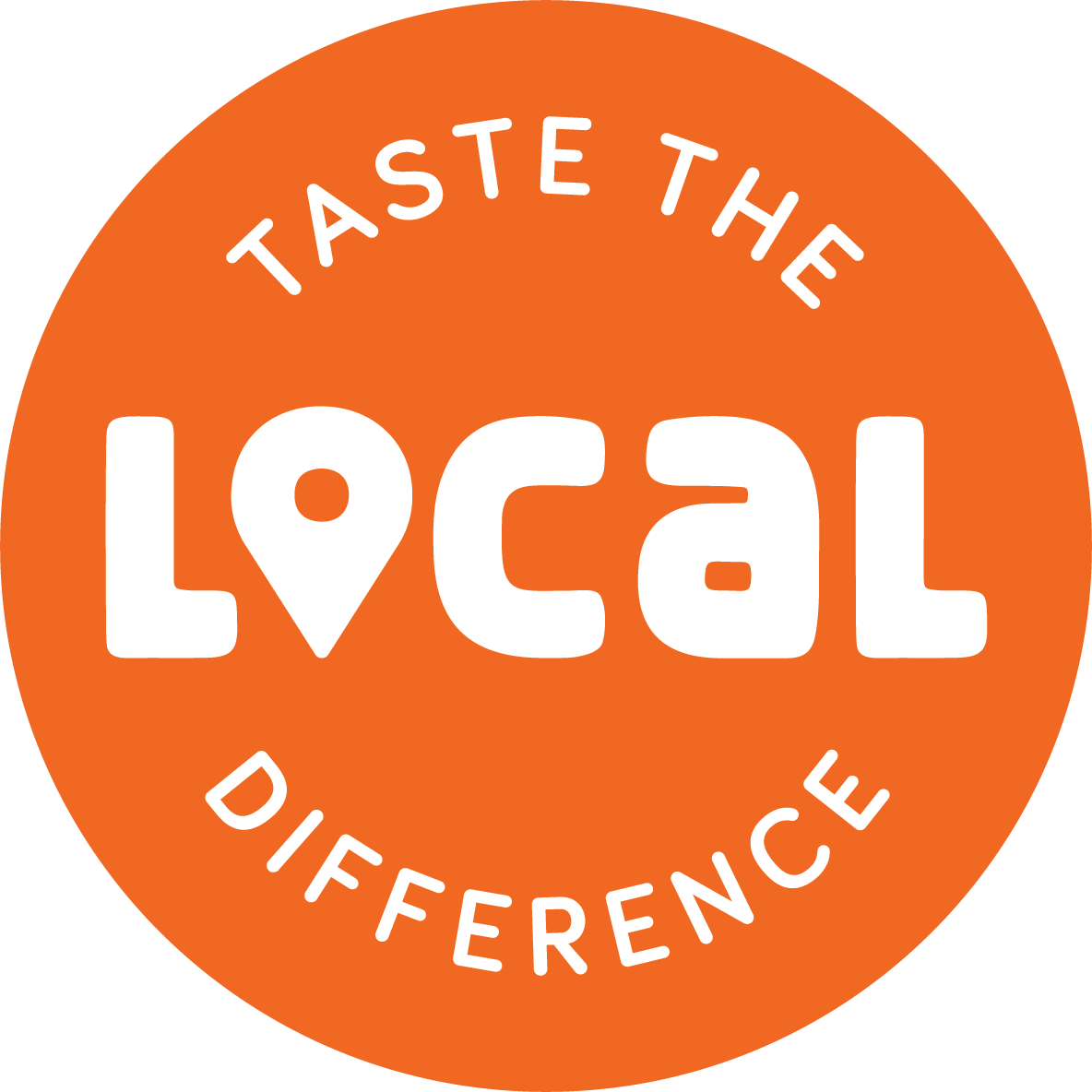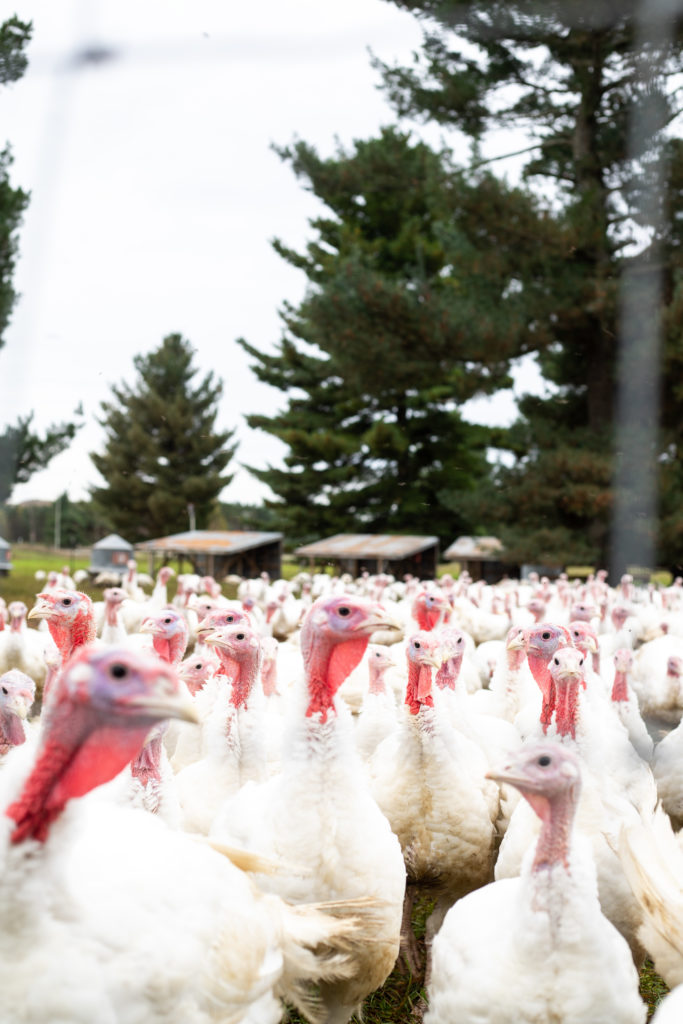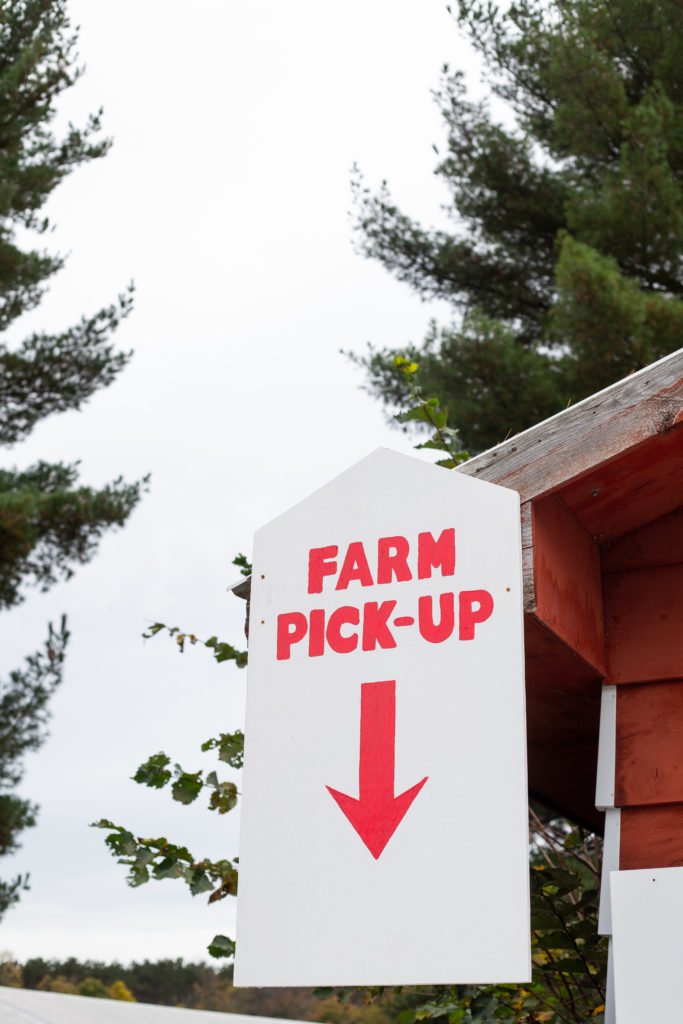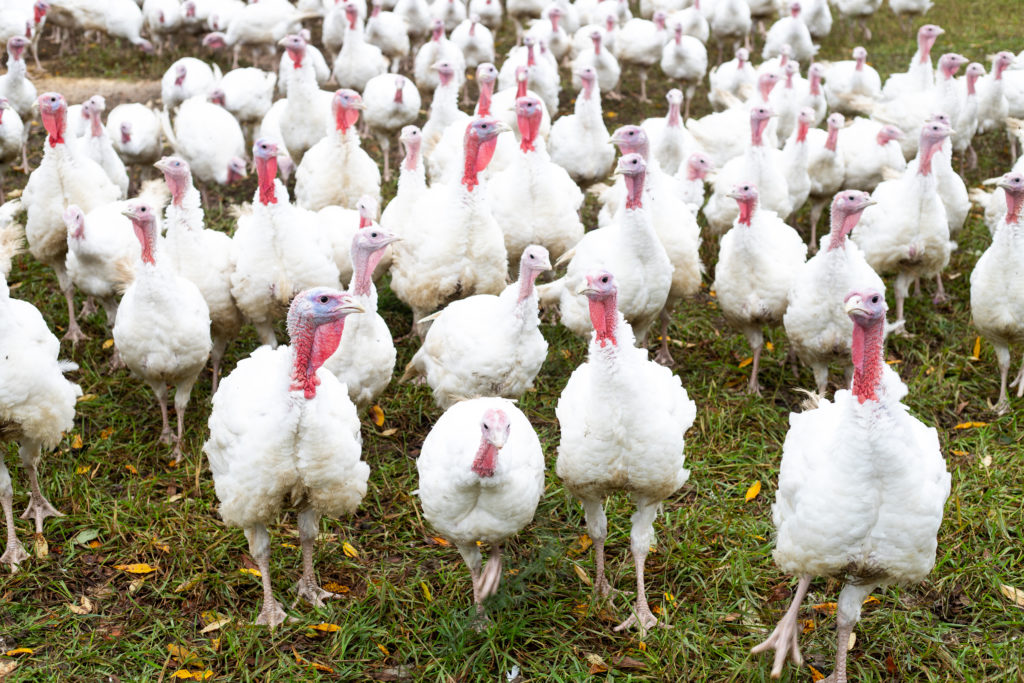
At Duerksen’s Turkey Farm in Mancelona, Rick Duerksen starts each day with morning chores. For all his turkeys, this means fresh water – as well as fresh bedding for young turkeys inside, and moving mobile feeders and water to fresh grass for the larger birds pasturing outside. On processing days, where Rick and a team of 4 others spend 12 hours preparing birds for eating in their MDA-licensed on-site facility, this has to happen before 6am.
With shocking headlines exposing mass poultry farms and processing facilities, it’s easy to forget that many local farmers are raising turkeys in a way that values the animal, the local economy, and the customer’s health. But a visit to Duerksen’s, where the turkeys come rambling up as a flock to greet you amidst stunning fall scenery, is enough to make you feel thankful for local agriculture, and the work farmers do to make our Thanksgiving tables full of incredible food.
Raising Turkeys at Duerksen’s
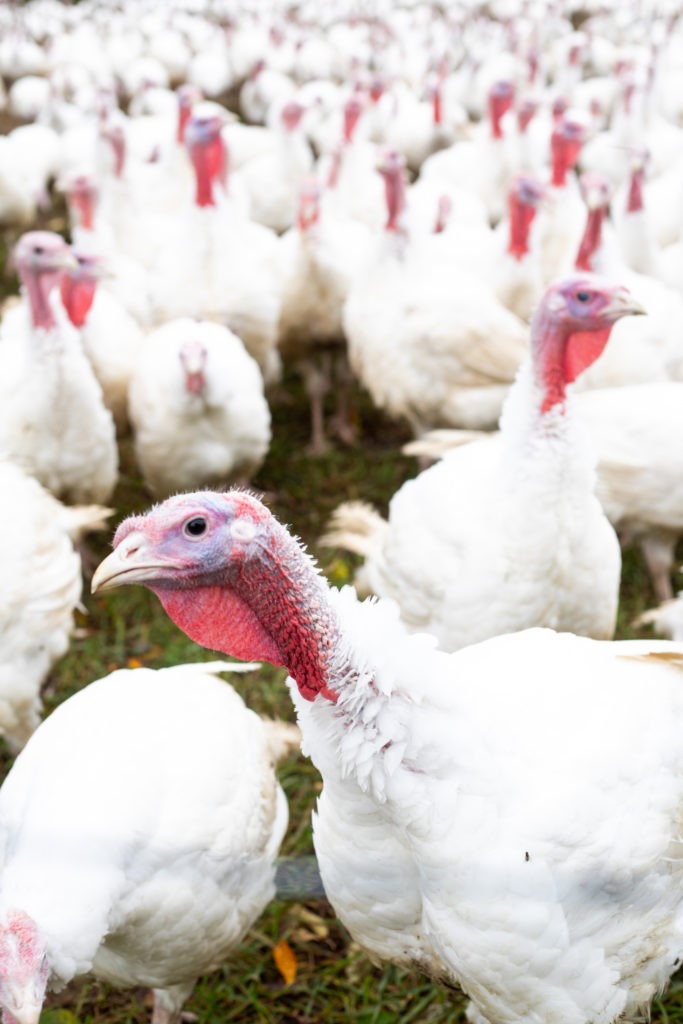
The turkeys on this Northern Michigan farm are well cared for, from their first poults in March, to the last flock’s processing day in December. When preparing for a new flock, Duerksen’s will spend a day removing everything from a barn, washing and disinfecting both the barn and its equipment, and then carefully drying it before putting it all back. The poults are purchased as day-olds in Grand Rapids, and then are carefully driven to the farm to regulate their temperature, conditions, and overall stress level. They spend their first 9-10 weeks indoors, which protects them mainly from predators in the air, like owls and hawks. Once strong enough to head outdoors, the turkeys graze on pasture and certified non-GMO feed until big enough to become a centerpiece meal.
When Rick isn’t headed into a processing day, he’s likely making deliveries – both locally, to sources like Oryana, Grain Train, or Cherry Capital foods, or as far as Detroit, with retailers such as Farm Field Table and Marrow. You can also find him delivering birds to Michigan USDA processing and slaughtering facilities to make their large array of additional products, such as turkey bacon, jerky, and 8 flavors of brats.
At the beginning of November, the Duerksen family will reach a brief moment of respite from the usual routine to prepare for the big day – turkey day. They check and double check equipment, make last deliveries, and get set up for the six day processing of their Thanksgiving turkeys — all 1200 of them. These long days require a team of eight to work from 4 in the morning until 7 or 8 in the evening. Nothing can break down, says Duerksen, because there isn’t any time to fix it. So they spend a couple of weeks making sure everything will be as smooth sailing as possible to get turkeys to tables. This makes Duerksen “grateful for one turkey day a year.”
So what makes it all worth it – and why should you buy in? According to Rick, it’s because all of his birds are antibiotic-free, fed on certified non-GMO grain, and processed on site for Thanksgiving. I’d add that purchasing a local bird supports Michigan turkey farmers like the Duerksen’s, who wake up at 3 in the morning in the days leading up to Thanksgiving to provide their community with something special during the holiday season and beyond.
Where to Find Farm Raised Thanksgiving Turkeys
You can order Duerksen’s fresh birds for pick up at the farm in Northwest Michigan on their website, or through retailers like Oryana and Grain Train. You can find turkey farmers like Duerksen’s throughout the state on our Find Food and Farm’s Directory.
Claire Butler is the Communications Coordinator for Taste the Local Difference. Contact her at [email protected].
